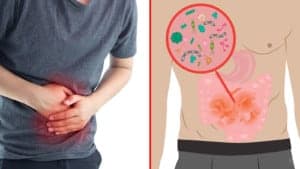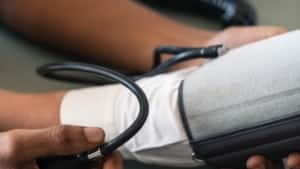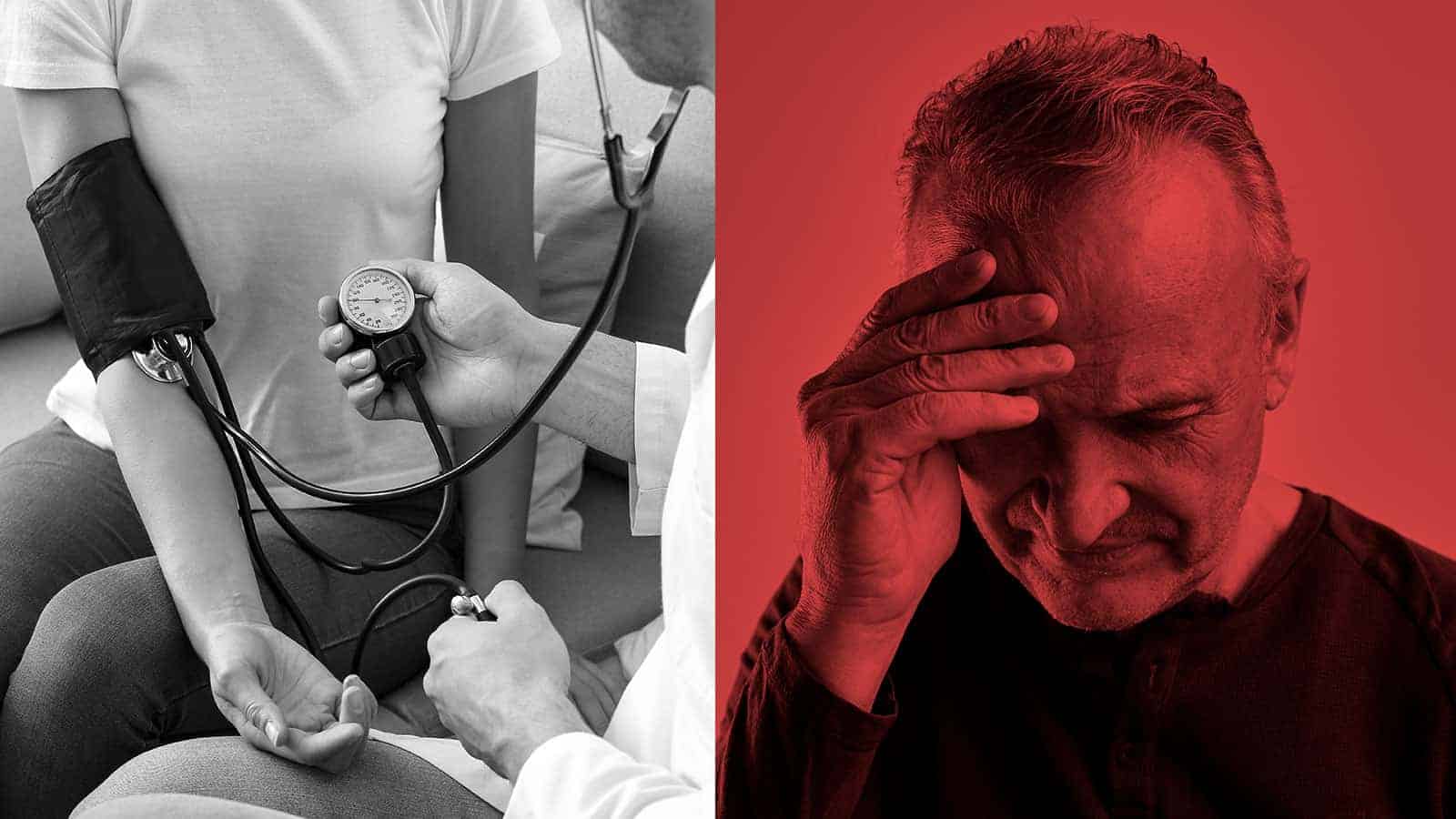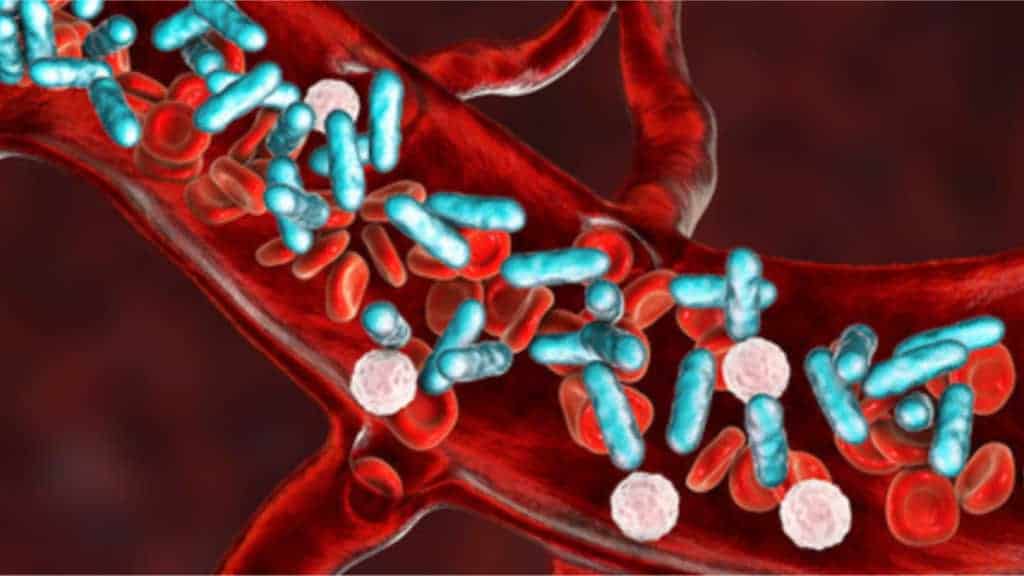Low blood pressure, or hypotension, is a condition that can weaken the body or cause a life-threatening situation. You probably don’t hear as much about it as you do hypertension or high blood pressure. Both conditions carry health risks.
When you visit the doctor’s office, the staff will always take your blood pressure, or BP, as part of your vital signs. An average BP runs around 120/80. However, many people’s numbers may naturally be a little higher or lower. Only a licensed physician is qualified to interpret the significance of your BP.
How Does the Doctor Measure Your Blood Pressure?
The cuff is usually placed right above your elbow on the left arm, which is against your arm’s main artery. As the cuff pumps in the air, it restricts your arm’s blood flow momentarily. The machine will record your results manually or electronically.
As the air pressure gradually releases from the cuff, your first arterial pulse registers as your systolic or top number. The last pulse before the cuff goes flat is called your diastolic or the bottom numbers. This scale represents the pressure in your blood vessels as the heartbeats.
What Indicates a Low Blood Pressure Diagnosis?
Like many others, your BP may be naturally on the lower side, and you don’t have any problems with it because it’s your normal. Cardiologists consider a systolic reading below 90 mm and a diastolic reading below 60 mm as low blood pressure. Even lower readings can be just as dangerous as readings that are too high.
If you are prone to low BP, then it’s essential to visit your health care provider regularly and monitor it daily at home. Acute hypotension often indicates an underlying illness or disorder. Your doctor will order more tests to find the root cause.
What Are the Symptoms of Hypotension?
Since most symptoms commonly present with other disorders, the leading indicator is that your numbers are registering low when checked. Can you tell if you are hypotensive before you test your BP? Look for these red flags.
1 – Dizziness
People who are experiencing a drop in their BP will often feel light-headed and dizzy. Low pressure in the blood affects blood flow to the brain, which reduces oxygen levels. The resulting weakness may be gradual or sudden.
2 – Fainting
If your head is spinning with dizziness, you might feel like you are going to faint. Sudden BP drops often cause syncope or fainting. Experts recommend that you sit down immediately and lower your head while getting emergency medical attention.
3 – Nausea
Do you often feel nauseated? If you were not diagnosed with digestive or other medical issues, you might have problems with your blood pressure. As the body is weakened from weak blood flow and lower oxygen levels, nausea is a typical result.

4 – Blurry Vision
Maybe your vision is blurry for no apparent reason. You might feel foggy, exhausted, and are unable to concentrate on anything. See your health provider as soon as possible and see if low BP is the culprit.
A drastic drop in BP can be life-threatening, requiring emergency care. This dangerous condition may cause shock. If you or a loved one are suddenly confused, has shallow breathing, cold/clammy skin, and a weak pulse, it’s time to call the paramedics.
What Causes Low Blood Pressure?
Here are several factors that cause low blood pressure.
1 – Dehydration
Do you drink enough water? If not, you can become dehydrated, and your BP may become too low. If you have a fever, take water pills, or do strenuous exercises, be kind to your circulatory system and drink plenty of H20.
2 – Dietary factors
An improper diet can also affect your BP readings. Specific vitamins, like B12, are crucial for manufacturing red blood cells. A drop in red blood cells, called anemia, can negatively affect your blood pressure.
3 – Your heart’s health
The heart is the central organ of the cardiovascular system. When you struggle with a cardiac condition, it may restrict the flow of blood and result in hypotension. Any blood disorder or substantial blood loss may also create low pressure.
4 – Endocrine health issues
Since the circulatory system works closely with the endocrine system, any endocrinological disorders may decrease blood pressure. You may be hypotensive if you are diagnosed with diabetes, adrenal disease, or thyroid disorders. Your doctor will keep both conditions monitored regularly.
5 – Blood infections
When the blood is infected and carries poisons throughout the body, it results in a potentially lethal disease called septicemia, or sepsis. Patients experience septic shock and are in danger of systemic shutdown. Septicemia almost always drops the blood pressure, often to critical levels.
6 – A natural tendency
You may be one of many people who have low BP for no reason. If your health care professionals have ruled out illnesses, they will probably just recommend that you keep it regularly monitored. An acute hypotensive condition requires further investigation of underlying causes.
7 – Pregnancy
It is not unusual for pregnant women to have low BP. If you are pregnant, your drop in blood pressure may be due to an expansion in your circulatory system, which is now providing for two. After you have your baby, you will probably see your BP go back to normal.
8 – A few medications
Did you realize that some medicines you take can make you hypotensive? Antidepressants, beta-blockers, and drugs for Parkinson’s Disease are among those. Doctors warn men who take erectile dysfunction medications that the most severe side effect is a dangerous BP drop.
Are There Different Forms of Low BP?
After your doctor has evaluated your signs and symptoms and has diagnosed hypotension, he/she will also diagnose the type you have. Although other types may exist, yours will probably fit in one of the four main categories.
• Postprandial
Postprandial is a big word that means your BP drops after you eat. You are more apt to be in this category if you are a senior. The usual increase in BP to aid digestion may malfunction due to certain medical conditions, and you may feel faint dizziness after a meal.
• Postural
Sometimes people experience sudden blood pressure drops when they stand, known as postural. It may be caused by a plethora of reasons, such as certain disorders, medication, or pregnancy. Even though it is usually a senior malady, younger people who exercise strenuously may also be susceptible.
• Chronic
Those who have a neurological condition called Shy-Drager Disorder suffer damage that controls the automatic nervous system. Since this system regulates blood pressure, a malfunction can lead to chronic blood pressure issues.
• Neurally Medicated
Your brain automatically signals your heart when to beat and regulate blood pressure flow throughout the body. If these nerves are not functioning correctly, you may become hypotensive, which a condition called neurally mediated. It usually affects only young adults and children.
Do You Have Risk Factors for Low Blood Pressure?
Low blood pressure can affect people, regardless of race, gender, or age. Anyone can present with hypotensive signs and symptoms. However, you are more apt to receive a diagnosis if you have certain risk factors.
Medical studies demonstrate that the more you age, the more susceptible you are to hypotension. The risk is higher if you are over 65. It stands to reason that since seniors are prone to hypotension-causing conditions, this condition would be probable.
Certain diseases or disorders can cause lower BP readings. Although neurological disorders like Parkinson’s Disease almost exclusively affect seniors, cardiac disease, and diabetes can be present at any age. Low BP usually is a co-morbidity of these conditions.
Along with chronic health conditions comes medications that can affect blood pressure. Talk with your doctor about any medications you are taking that could make you hypotensive. Such information is crucial for your well-being.

Final Thoughts: The Treatments for Low Blood Pressure
Has your health care provider issued a diagnosis of low BP? The good news is that your physician can treat the condition. Your doctor will provide you with treatment options that can keep your BP at healthy levels. One of the first options is to take a medication that will increase blood volume. Thankfully, many natural supplements and techniques have little to no side effects that can do the same thing.
Self-care is an essential way to deal with a hypotensive situation. If you feel signs that your blood pressure is dropping, then you should lie down immediately. If you are prone to fainting spells, then you want to make sure you don’t fall.
Additionally, drinking water can also help you to calm yourself, which often improves hypotension much better. It’s easy to panic when you feel like you’re going to pass out. So, you must wait until your blood volume rebuilds before getting up again. If you are having continual problems with this issue, then you need to see a doctor right away.
Having low blood pressure can be very serious and can cause severe medical complications. You need to be evaluated to see why this situation is happening and what can be done to fix it.















 Community
Community

